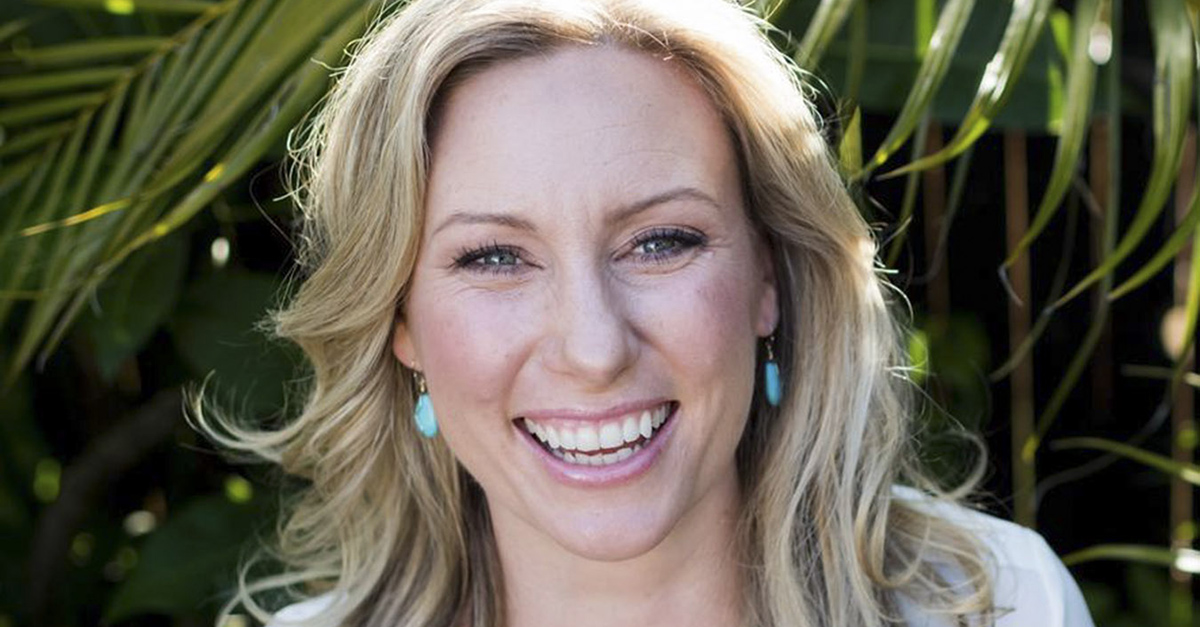In Minneapolis this past July, an Australian woman named Justine Ruszczyk Damond became the 661st person to be killed by police in America this year. She’d dialed 911 after hearing a woman screaming near her home, and when she met the cops in her alleyway, unarmed and dressed in pajamas, one of them fatally shot her in the stomach.
Videos by Rare
Damond’s death raised a lot of questions, like why were the body cameras turned off and the dashcams useless? Why were the bodycams apparently operating at the officers’ discretion? Why were two inexperienced cops partnered and sent to handle intense situations alone? And why was Damond shot at all?
In the six months since, those questions haven’t been answered. The Minnesota Bureau of Criminal Apprehension (BCA) is investigating, but the officer who shot Damond, Mohamed Noor, won’t talk to investigators, and neither will his partner, who was in the driver’s seat in the alley.
As Rare’s Carlin Becker reported Thursday, Damond’s family isn’t satisfied. “We are apprehensive that perhaps the BCA has not fulfilled its promise” of a fair and rigorous investigation, her father said. “What are we to think? We are deeply concerned about the possibility that the initial investigation was not done properly.”
His comments came after a video emerged of the county attorney, Mike Freeman, who would be responsible for prosecuting Noor. Freeman was caught on camera, apparently unaware he was being filmed, expressing frustration with the fruits of the BCA probe so far.
“If you look at this, here’s a nice lady who hears something bad outside, she calls the cops, they don’t come, she calls again, they drive by in her alley, they don’t stop to talk with her, and she comes out in her jammies, and she’s killed by a cop. Sounds easy, doesn’t it?” Freeman said. “But it’s not just. Can I prove the cop shot her? I could’ve done that the first day. That’s not how it works.”
Noor “won’t answer my questions and he doesn’t have to,” Freeman added. “We all have Fifth Amendment rights … I can’t talk to her because she’s gone, and [Noor’s partner] just gave us s–t.”
Now, I’m as eager as anyone to argue that government employees, like police, should be subject to special scrutiny on the job. Their alleged misconduct or criminality should be subject to extra thorough and transparent investigation. People in these roles are supposed to be public servants, and that responsibility ought to come with real ethical demands.
But here’s the thing: Freeman is right. We all have Fifth Amendment rights. Noor and his partner are within their rights to keep silent to avoid incriminating themselves. As much as I want these guys to talk, I don’t want to see them forced to talk. The very rule of law I think will be jeopardized if Noor doesn’t go to trial is also at play in ensuring his rights as a criminal suspect.
In a statement apologizing for speaking ill of BCA investigators, Freeman promised that a real update is coming sometime this week, so perhaps he’s obtained some new evidence that will enable him to press appropriate charges—something like second-degree manslaughter, a charge that typically requires (state laws can vary a little) “only two factors: 1) the person charged must have caused the death of the victim, and 2) the perpetrator must have caused the death of the victim via reckless means.”
The first point is not in dispute here—so far as I know, everyone agrees Noor shot Damond—and the second one seems provable even without Noor’s testimony, and even with the dangerous deference Americans tend to give police.
Still, I keep coming back to the question of the missing body camera footage. Think how different this case would be if those body cameras had been operating properly. We would have a fourth witness, a far more impartial and precise witness than Noor or his partner could be. Freeman would likely have all the evidence needed to bring charges regardless of testimony, and Damond’s family wouldn’t be forced to wonder whether their daughter’s death is being handled justly.
The mystery surrounding Damond’s death is why proper body camera use is so necessary, regardless of whether the cameras positively affect police behavior in real time or not. Even if body cameras can’t prevent police misconduct, if used correctly, they can provide accountability when it happens.



